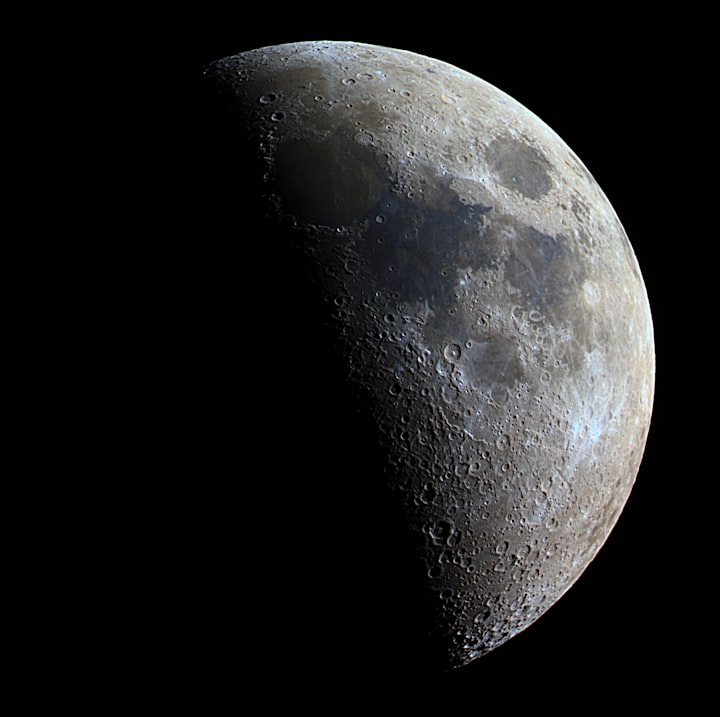Exploring the Rich Tapestry of Arab Civilization
10 Mind-Blowing Facts that Will Leave You in Awe

Arab civilization is a fascinating subject that encompasses a diverse range of cultures, traditions, and contributions that have shaped the world we live in today. Stretching across the Middle East and North Africa, Arab culture is steeped in history and has left an indelible mark on the fields of art, science, literature, and more. In this article, we will delve into the origins of the Arab people, explore the key characteristics of Arabic culture, and uncover some mind-blowing facts that will leave you in awe of the rich tapestry of Arab civilization.
Origins of the Arab People
The Arab people, also known as Arabs, have a long and complex history that dates back thousands of years. The origins of the Arabs can be traced to the Arabian Peninsula, specifically the region that is now modern-day Saudi Arabia. It was here that the Bedouin tribes, nomadic desert-dwelling people, first emerged and laid the foundation for what would become the Arab civilization.
Over time, the Arab people spread beyond the Arabian Peninsula, establishing their influence across the Middle East and North Africa. They encountered various cultures along the way, including the Byzantines, Persians, and Egyptians, which shaped and enriched their own culture. Today, the Arab people are united by their common language, Arabic, and their shared cultural heritage.
Key Characteristics of Arabic Culture
Arabic culture is characterized by a deep sense of tradition and a strong emphasis on family and community. Family bonds are highly valued, and extended families often live together in close-knit communities. Respect for elders is paramount, and the wisdom and guidance of older generations are revered.
Arabic culture is also known for its hospitality and generosity. Guests are treated with utmost respect and are often offered food and drink as a sign of welcome. Arab hospitality is legendary, and visitors are often overwhelmed by the warmth and kindness they experience when visiting Arab countries.
Arab Traditions and Customs
Arab traditions and customs play a significant role in everyday life and are deeply rooted in Islamic teachings. The Islamic faith is a central pillar of Arab culture, and its principles guide many aspects of daily life, including prayer, fasting, and charitable giving.
One of the most important Arab traditions is Ramadan, the holy month of fasting. During this time, Muslims abstain from food and drink from sunrise to sunset as a way to purify the soul and strengthen their connection with God. The breaking of the fast, known as Iftar, is a communal event that brings families and communities together.
Arab Contributions to Art, Science, and Literature
Arab civilization has made numerous contributions to the fields of art, science, and literature, leaving an enduring legacy that continues to inspire and impress. In the realm of art, Arab calligraphy is renowned for its intricate beauty and is considered a form of artistic expression. Arab mathematicians and astronomers made significant advancements in their respective fields, laying the foundation for modern mathematics and astronomy.
Arab literature is also highly esteemed, with classic works such as “The Arabian Nights" captivating readers for centuries. These tales, set in exotic locales and filled with enchanting characters, have become an integral part of world literature.
Arab Cuisine and Culinary Traditions
Arab cuisine is a delightful fusion of flavors and influences from across the Middle East and North Africa. It is characterized by the use of aromatic spices, such as cumin, coriander, and saffron, which lend depth and complexity to dishes.
One of the most well-known Arab dishes is hummus, a creamy dip made from chickpeas, tahini, garlic, and lemon juice. Another popular dish is falafel, deep-fried balls made from ground chickpeas or fava beans, often served in pita bread with tahini sauce.
Famous Landmarks and Architectural Marvels in Arab Countries
Arab countries are home to some of the world's most iconic landmarks and architectural marvels. From the pyramids of Egypt to the majestic Alhambra in Spain, Arab architecture has left an indelible mark on the world.
The Great Mosque of Mecca, also known as the Kaaba, is the holiest site in Islam and attracts millions of pilgrims each year. Its striking black cube structure is a symbol of unity and devotion for Muslims worldwide.
Arab Music, Dance, and Entertainment
Arab music, dance, and entertainment are vibrant and diverse, reflecting the rich cultural tapestry of the Arab world. Traditional Arab music often features unique instruments such as the oud, a stringed instrument similar to a lute, and the darbuka, a type of drum.
Belly dancing, with its graceful movements and intricate choreography, is a popular form of traditional Arab dance. It is often accompanied by live music and is a captivating display of skill and artistry.
Unique Aspects of Arab Hospitality
Arab hospitality is renowned for its warmth, generosity, and attention to detail. Guests are treated with the utmost respect and are made to feel welcome and comfortable in Arab homes. The concept of "diwan" is central to Arab hospitality, referring to a gathering place where guests are received and entertained.
Arab hospitality also extends to the concept of "majlis," which refers to a social gathering where people come together to discuss important matters, share stories, and enjoy each other's company. It is a testament to the strong sense of community and connection that is deeply ingrained in Arab culture.
Conclusion: Celebrating the Diversity and Richness of Arab Civilization
The rich tapestry of Arab civilization is a testament to the diversity and resilience of the Arab people. From their origins on the Arabian Peninsula to their vast contributions in the fields of art, science, and literature, the Arab world has left an indelible mark on human history.
By exploring the key characteristics of Arabic culture, traditions, and customs, we gain a deeper understanding of the values and beliefs that underpin Arab society. From the warm hospitality to the culinary delights, Arab civilization offers a wealth of experiences that continue to captivate and inspire.
So, the next time you find yourself in awe of the beauty and intricacy of Arab architecture, or savoring the flavors of Arab cuisine, take a moment to appreciate the rich tapestry of Arab civilization and the remarkable contributions it has made to our world.
CTA: Join us on a journey of discovery as we explore the depths of Arab civilization and uncover the wonders that await. Let us celebrate the diversity and richness of Arab culture together.





Comments
There are no comments for this story
Be the first to respond and start the conversation.